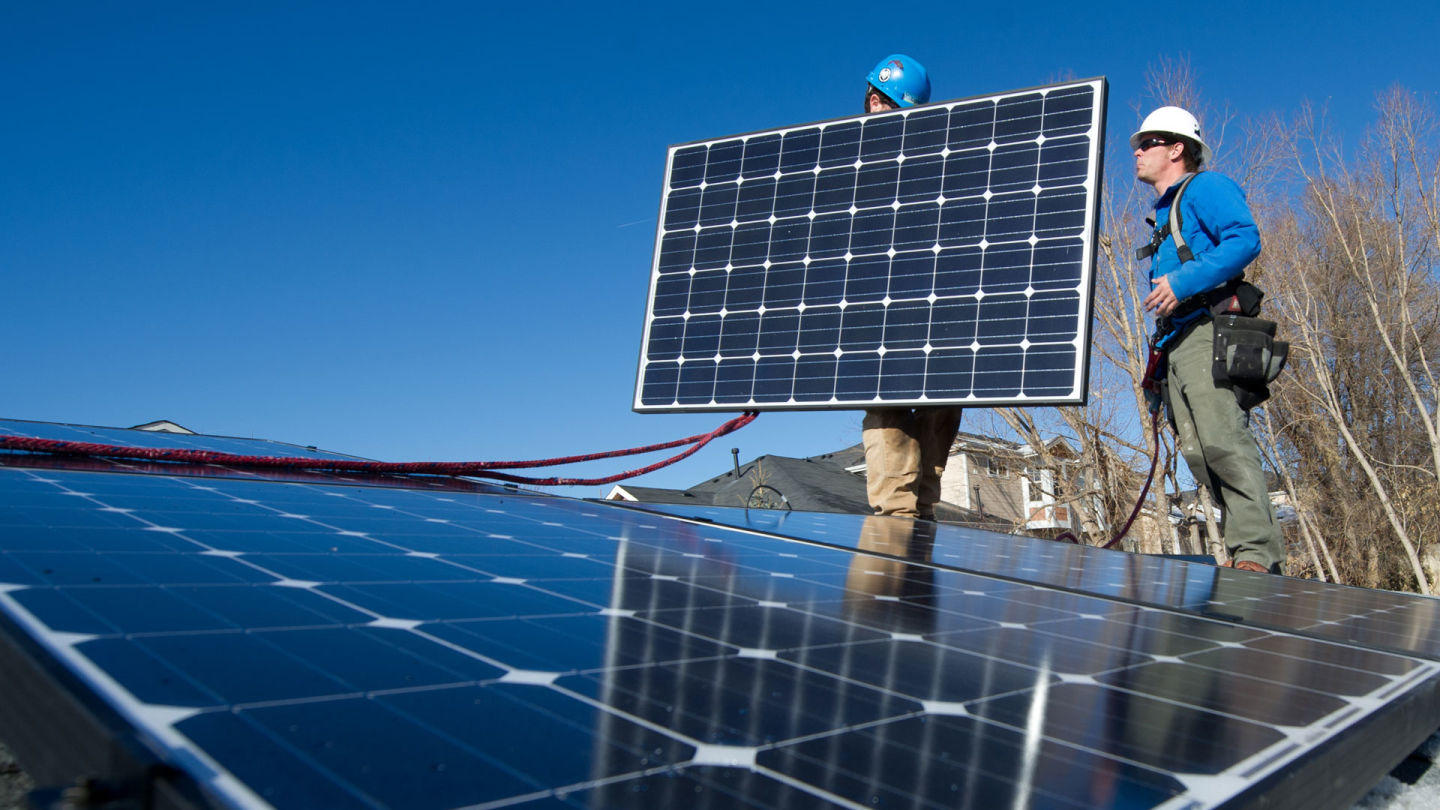So, you’ve made the switch to solar—congrats! 🌞 You’re already saving on electricity, reducing your carbon footprint, and likely feeling pretty good about it. But here’s the question many homeowners forget to ask: When was the last time you scheduled a solar panel maintenance service?
Like any valuable investment, solar panels need a little TLC to perform their best. While they’re built to last 25+ years, skipping maintenance can shave off years of efficiency—and cost you money.
In this guide, we’ll walk you through everything you need to know about keeping your system running at full power with a reliable solar panel maintenance service.
⚡ What Is Solar Panel Maintenance Service?
A solar panel maintenance service is a professional checkup for your solar energy system. Think of it like getting an oil change for your car—it keeps things clean, efficient, and problem-free.
Here’s what a standard service usually includes:
-
Visual inspection of panels and mounts
-
Cleaning off dust, leaves, pollen, or bird droppings
-
Checking the inverter for error messages
-
Inspecting wiring, fuses, and electrical connections
-
Performance evaluation of energy output
-
Preventive fixes before major issues arise
While most solar systems are low-maintenance, routine service keeps your energy savings—and panel lifespan—at their peak.
🔍 Do Solar Panels Really Need Maintenance?
Absolutely. While solar panels have no moving parts, they’re still exposed to the elements—rain, dust, bird droppings, pollution, and even snow. Over time, buildup can reduce efficiency by 10% or more.
A professional solar panel maintenance service can:
-
Restore energy output lost to dirt or shading
-
Prevent long-term damage caused by corrosion or debris
-
Spot inverter or wiring issues early
-
Extend the lifespan of your system
Bottom line? Maintenance protects your investment and ensures your system runs as efficiently as the day it was installed.
🛠️ What Happens During a Maintenance Visit?
Wondering what actually happens during a solar panel maintenance service? Here’s a simple breakdown of what to expect from most professional providers:
1. Panel Cleaning
Special cleaning solutions and soft brushes are used to gently remove grime without damaging the panel’s surface. Avoid doing this yourself—DIY cleaning can void warranties.
2. Inverter Check
The inverter is the heart of your solar system. Technicians will check for faults, updates, or errors that could affect energy conversion.
3. Electrical & Wiring Inspection
Loose connections, corrosion, or wear can reduce system safety and performance. A trained eye can spot and repair these before they become serious issues.
4. Roof & Mount Evaluation
Technicians will ensure the mounting system is still secure and your roof is free from damage caused by shifting panels or weather.
5. Performance Report
After the inspection, you’ll get a detailed report showing your system’s health, performance stats, and any recommended actions.
📆 How Often Should I Schedule Solar Panel Maintenance?
For most homes, a solar panel maintenance service once every 12 to 18 months is ideal. However, this depends on your location and environment.
If you live in:
-
Dusty, windy areas → Every 6–12 months
-
Rainy climates with trees nearby → Once a year
-
Urban or industrial zones → Twice a year
Regular service helps you catch small issues early—before they turn into expensive repairs or energy loss.
💡 Signs You Might Need Solar Panel Maintenance Sooner
Keep an eye out for these red flags that may indicate it’s time for a solar panel maintenance service:
-
Your energy bill is higher than usual
-
Monitoring app shows reduced performance
-
Visible dirt or bird droppings on panels
-
Shaded panels due to nearby tree growth
-
Unusual inverter noises or error messages
Don’t ignore these signs. A quick checkup can get your system back to peak performance fast.
💸 How Much Does Solar Panel Maintenance Cost?
Costs vary depending on your system size, location, and the company you hire. On average, you can expect to pay:
-
$150–$300 per visit for standard cleaning and inspection
-
$200–$500+ for larger or commercial systems
-
Some companies offer annual service plans or include maintenance in their warranties
💬 Pro Tip: Ask your original installer if they offer discounted service packages or extended maintenance plans.
🌱 Why Choose a Professional Solar Panel Maintenance Service?
DIY might sound cheaper—but it can void your warranty or damage panels if done incorrectly. A certified technician will:
-
Use the right tools and safety gear
-
Spot issues that aren’t visible to the untrained eye
-
Provide documentation for warranty claims
-
Ensure your panels are cleaned without scratches or chemical damage
Trusting a professional solar panel maintenance service protects both your panels and your wallet.
📖 FAQs About Solar Panel Maintenance Service
Q: How long does a maintenance visit take?
A: Most services take 1–2 hours, depending on system size and accessibility.
Q: Will rain clean my panels for me?
A: Rain can help, but it often leaves behind dust, pollen, or water spots. Professional cleaning is still recommended annually.
Q: Can I clean the panels myself?
A: You can, but it’s risky. Using harsh cleaners or improper tools can scratch the panels or cause electric shock.
Q: Is maintenance covered by warranty?
A: It depends on the installer. Some include it in premium service plans; others require separate maintenance agreements.
✅ Final Thoughts: Protect Your Power with Routine Maintenance
Solar panels are one of the best investments you can make—but they still need care to keep producing power efficiently. Scheduling regular solar panel maintenance service ensures that your system performs at its best for decades to come.
By catching issues early, keeping your panels clean, and making sure your inverter and wiring are in top shape, you’re maximizing your solar savings and protecting your home’s energy future.
So if it’s been a while since your last check-up, now’s the perfect time to book a professional solar panel maintenance service near you. Your panels—and your power bill—will thank you.
